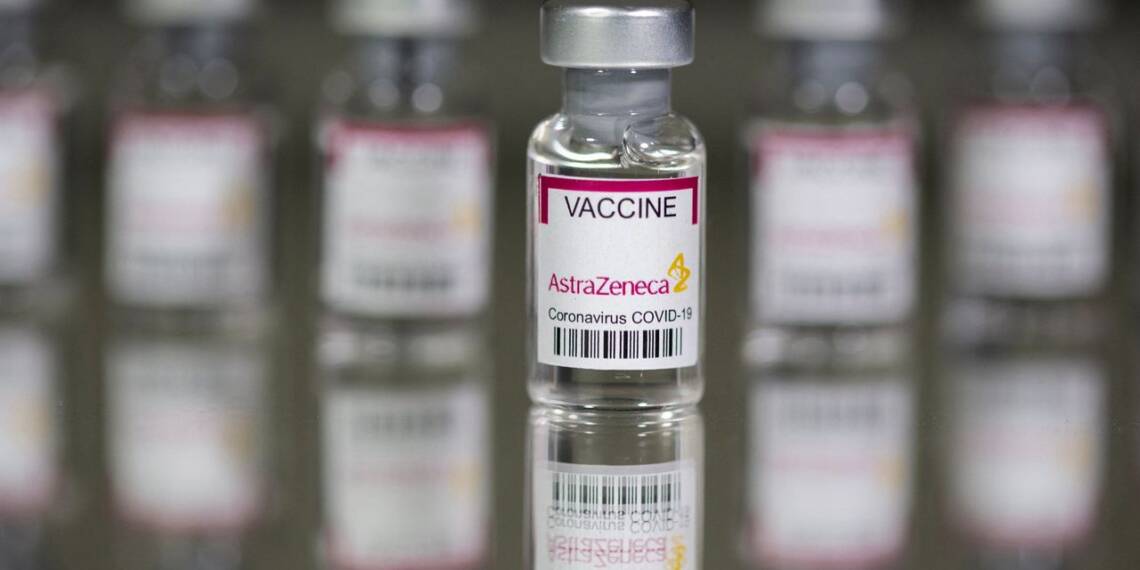AstraZeneca’s belated admission of the potentially life-threatening side effects of its COVID-19 vaccine is a stark testament to the negligence that can pervade the pharmaceutical industry under the guise of urgency and public health. The case against the UK-headquartered giant, as outlined in recent court documents, lays bare a disconcerting reality: the company has acknowledged that its vaccine, developed in partnership with the University of Oxford, can cause Thrombosis with Thrombocytopenia Syndrome (TTS) in “very rare cases.” Yet, it disturbingly took a full year for AstraZeneca to formally admit this in a legal arena, despite the clinical community recognizing these risks much earlier.
This admission came only in the face of a High Court action in London, initiated by 51 claimants seeking justice for the severe consequences they or their loved ones suffered post-vaccination—ranging from strokes and brain damage to heart attacks and even death. The legal document, quoted by ‘The Daily Telegraph,’ chillingly reveals the company’s stance: TTS can indeed occur due to the vaccine, although the exact causal mechanism remains unidentified. This vague acknowledgment does little to mitigate the impact on those affected, whose conditions are severe enough to challenge the very essence of consumer protection and corporate accountability.
What’s more damning is the attitude displayed by AstraZeneca and its cohorts. Sarah Moore from Leigh Day, representing the claimants, pointedly criticizes the company and associated governmental bodies for their apparent prioritization of legal strategizing and fee accumulation over the dire health repercussions suffered by individuals.
The implications of these revelations are profound. They do not just cast a shadow on AstraZeneca’s reputational integrity but also raise serious questions about the oversight of vaccine safety and the ethical responsibilities of pharmaceutical behemoths. The affected individuals, backed by undeniable medical evidence and death certificates, are not just statistics but poignant reminders of the real-world consequences of corporate oversights.
This situation is a damning indictment of AstraZeneca’s handling of its vaccine’s fallout and is emblematic of a broader systemic failure that prioritizes profits and public relations over patient safety and transparency. The ongoing legal battle is not merely a quest for compensation but a demand for justice and a call for reform in how drug companies and regulatory bodies address vaccine side effects and patient safety.
AstraZeneca’s response to the damning allegations surrounding the safety of its COVID-19 vaccine encapsulates a troubling narrative of corporate deflection and delayed accountability. Despite claimants arguing that the AZ vaccine’s safety fell below expected standards, AstraZeneca’s retort was both dismissive and disturbingly tardy. The assertion that “patient safety is our highest priority” rings hollow against a backdrop of severe health repercussions and legal challenges.
In their statements, AstraZeneca clung to regulatory approvals and the supposed balance of benefits over risks, citing updates to vaccine information that included warnings about Thrombosis with Thrombocytopenia Syndrome (TTS) as early as April 2021. Yet, this acknowledgment came after countless doses had been administered, exposing patients to potential harm that was only conceded under regulatory pressure rather than proactive corporate responsibility.
Criticism from medical professionals like British Indian cardiologist Dr. Aseem Malhotra amplifies this concern. His outrage over AstraZeneca’s delayed recognition of the vaccine’s risks, questioning the ethical basis of its initial rollout, reflects a broader distrust in the pharmaceutical industry’s commitment to transparency and public safety.
Moreover, AstraZeneca’s strategic positioning in court, where they have bundled claims to manage them collectively, might seem like an efficient legal maneuver, but it also appears as a tactic to dilute individual cases’ impact. The upcoming case management hearing in the London High Court is not merely procedural; it represents a critical juncture for justice and a test of the pharmaceutical industry’s moral compass.
As the World Health Organization continues to endorse the vaccine’s safety for adults, the legal disputes underscore the tension between global health narratives and individual suffering. AstraZeneca’s handling of the vaccine fallout is a glaring example of how pharmaceutical giants often navigate crises—by shielding behind regulatory frameworks and public health narratives, while downplaying individual tragedies. This approach is not just inadequate; it is a disservice to the very ethos of healthcare and patient safety.








